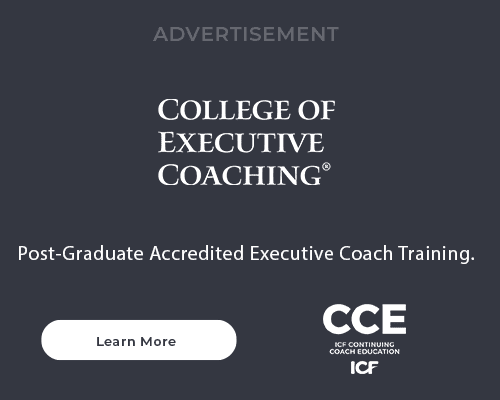From the Toolbox: Oh, the Questions We Ask
Core Competency #6: Powerful Questioning
Ability to ask questions that reveal the information needed for maximum benefit to the coaching relationship and the client.
“Sometimes the questions are complicated and the answers are simple.”
—Dr. Seuss
Are our questions too complicated? Alternatively, how can we simplify our questions?
As professional coaches, we need to reflect on our questions to ensure they are powerful. Clients’ responses open opportunities to move forward or change. What impact do vague or meandering questions have on clients’ ability to reflect, proceed and transform? I say, “When our questions are powerful, the answers become clear.”
Many novices learn to ask powerful questions with a model. To be transformative, we need to show up and bring our “Seuss-like” sense of wonder, curiosity, deep listening and intuition to the fore.
Below are my top five tips to improve your questions. Don’t discount their importance due to their simplicity.
1. Keep questions short and simple.
A Mentor Coach I once worked with challenged me to shorten my questions to seven words or less. This was difficult to hear after I had spent much effort working on this competency, and it initially threw me into self-consciously thinking about my delivery while coaching—and back to a beginner’s mindset.
This exercise helped me internalize the knowledge that the more complicated and convoluted our questions are, the harder they are to process. Lengthy questions freeze our clients’ minds just as sending multiple keyboard commands does to our computer. Everything locks up, and our clients metaphorically need to press control-alt-delete.
To help you create an awareness of shorter questions, see “KISS,” at right. My favorite example is, “What else?”
Try the seven-word challenge and reflect. What does forming shorter questions do for your coaching? How so?
2. Do not issue commands and hope they land as questions.
Sentences that open with phrases like “tell me,” “show me” and “help me understand” aren’t open-ended questions, and a client who doesn’t want to be open could respond with a curt “yes” or “no.”
I observe this frequently when I’m training and/or coaching managers and leaders to use coaching skills. When debriefed, the “commander” inevitably believes they are asking open questions and interprets them as such.
To rein in your own commander tendencies, during practice sessions, give yourself an unobtrusive tic mark each time you present a command. This will increase your self-awareness, helping you reframe your habit.
3. Ask secondary and tertiary questions.
We strive to help our clients connect the dots, experiment with different perceptions and see beyond their blind spots.
We support them to go deeper. Executive Coach and organizational anthropologist Judith E. Glaser calls this “Double-Clicking.” She explained the concept in a 2011 blog post: “I gave it this name because the process mimics the ‘double-clicking’ that we use when opening computer folders. When I use Double-Clicking with teams, I ask them to delve into—or double-click—on their individual mindscapes to share and compare word meanings and perceptions with each other.”
Double-Click to discover, explore and understand how the same terms have different meanings to each person. To practice Double-Clicking, imagine that important words in clients’ responses are hyperlinked. Double-Click to hear the meaning behind what they are saying by asking secondary and tertiary questions.
4. Shift perspectives.
We endeavor to help our clients expand their viewpoint. To help your clients shift perspectives, try these scenarios:
- Visit the future and predict … “What would that look like
next year?” - Pretend … “What if …?”
- Wear another’s lens …“What would x think?”
- Move them from ground floor to balcony …“What if you were flying above the situation?”
- Approach from different places … “What would your heart say? What about your head/brain/younger self/older self?”
- Dr. Seuss offers rich, perspective-altering advice: “Think left and think right and think low and think high. Oh, the thinks you can think up if only you try.”
5. Remain eternally curious.
“Adults are just obsolete children.”
—Dr. Seuss
Children are born with innate curiosity. We listen to our clients who get upset by miscommunications, failed expectations and life’s twists. Inspire them to get curious, not furious. Curiosity helps us ask, “What is possible?”After all, as Dr. Seuss said, “It’s not about what it is; it’s about what it can become.”
Practice these tips to improve your questions. Oh, and remember, when we ask succinct questions, we get out of our clients’ way, allowing them to find the answers they seek.
Copyright 2016 Barb Girson, My Sales Tactics, LLC. All Rights Reserved.




I do coaching in commercial and industrial start-ups
Thank you so much for these reminders! I’m most definitely going to incorporate number 4 more into my practice.
So much of this really resonated with me, particularly liked No. 2 – realise that I am often guilty of this in my efforts to “seek to understand” – as your article reminds us, this can serve to close a door rather than open it. Thank you for your insight.